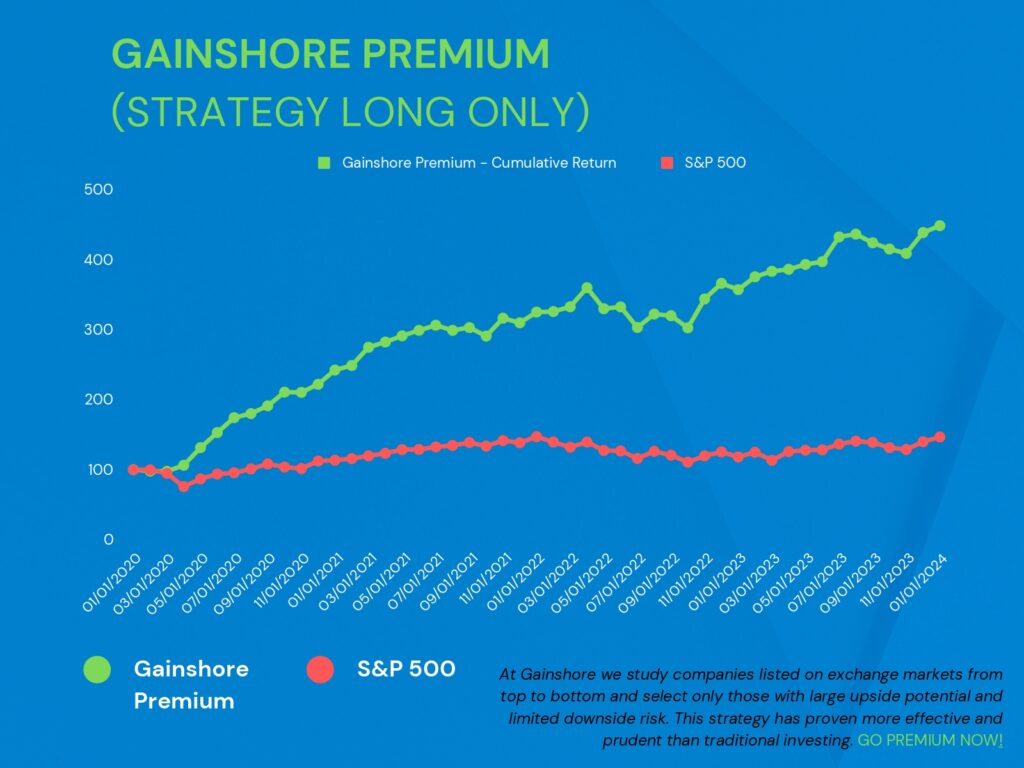In recent years, there has been a growing emphasis on the importance of sustainability and responsible business practices because of growing concern about the state of the environment and our future as humans.
As individuals and institutions become more conscious of the impact of their investments, a new method of assessing companies has emerged: ESG rating. With it, many investors changed their views about their investing techniques and parameters, creating a new and unexplored world: ESG Investing.
ESG Investing (Environmental, Social, and Governance) evaluate companies based on their performance in these three key areas, trying to estimate their impact on the future of the world. To understand it better we will look at the meaning of ESG ratings, their importance in sustainable investing, the role of ESG rating agencies, the rise of ESG ETFs, the methodology behind ESG ratings, and whether ESG works.
Meaning of ESG Rating or ESG Score
The ESG rating, also known as the ESG score, is a metric used to assess a company’s performance in areas such as environmental sustainability, social responsibility, and corporate governance.
An ESG rating measures an organization’s resilience to environmental, social and governance risks in the long run. The goal of ESG rating is to provide investors with a standardized framework for assessing a company’s sustainability and ethical practices. Investors can make more informed decisions about where to allocate their capital by assigning a numerical score or rating to companies.
A breakdown of the ratings into environmental (E), social (S) and governance (G) factors can be an effective means for analysing ESG ratings. This in-depth analysis can shed more light on the sustainability strategy, practices and programs of businesses while positioning them in their broader sector.
ESG Investing Definition
ESG investing, also known as sustainable investing or responsible investing, is an investment strategy that considers environmental, social, and governance factors in addition to financial considerations.
One strategy for ESG investors is to seek positive long-term returns while also positively impacting society and the environment. Investors can align their portfolios with their values and contribute to a more sustainable future by incorporating ESG criteria into their investment decisions.
Another type of ESG investor has less noble goals and seeks to profit from significant public and private sector investments and incentives, as well as the growing public interest in the environment, which has recently brought growth to companies that have embraced the sustainable business model, and that promise more growth in the future.
ESG Rating Agencies
Knowing where to invest money is hard. ESG scores are a great way to discover companies with the best environmental, social, and governance practices.
In response to the growing demand for ESG data and analysis, numerous ESG rating agencies have emerged. These organizations specialize in evaluating companies based on their ESG performance and providing investors with ratings or scores. These agencies’ information enables investors to make more informed decisions about the companies they choose to invest in.
Each agency has its methodology and approach to evaluating companies, but they all have the same goal in mind: to provide investors with reliable ESG data.
These are some of the most prominent ESG rating agencies:
- MSCI ESG Ratings
- Sustainalytics
- Institutional Shareholder Services (ISS) ESG
- Dun & Bradstreet
- Bloomberg ESG Disclosures Scores
- FTSE Russell’s ESG Ratings
- S&P Global ESG Scores
- CDP – Climate, Water, and Forest Scores
- Moody’s ESG Solutions Group
ESG ETFs
ESG exchange-traded funds (ETFs) have gained popularity in recent years. These investment vehicles give investors access to a diverse portfolio of companies that meet specific ESG criteria.
ESG ETFs are intended to limit their investments in companies that prioritize sustainability, social responsibility, and sound governance practices. They provide investors with an easy way to incorporate ESG considerations into their portfolios without sacrificing diversification or performance.
Demand for ESG ETFs is expected to rise as more investors seek to align their investments with their sustainability goals.

Methodology of ESG Ratings
ESG rating agencies use a variety of methodologies to assess a company’s ESG performance. While each agency has its approach, there are some factors that they all consider.
Environmental considerations refer to a company’s focus and direction towards the environment, including a company’s carbon footprint, waste management practices, and resource consumption.
Social criteria examine how the workplace deals with ethics, diversity, and inclusion with employees, suppliers, customers, and the communities where it operates. Labour practices, human rights, and community impact are examples of social factors.
Governance factors evaluate the company’s leadership, the board of directors structure, executive compensation, shareholder rights, and transparency of the company.
ESG rating agencies provide a comprehensive assessment of a company’s sustainability and ethical practices by analyzing these factors. The outcome is a score that should reflect the extent to which the company is engaged in these issues, and the extent to which value adds, net of environmental and social costs.
Is ESG Effective?
The efficacy of ESG investing and ESG ratings has been a source of contention among investors and academics.
Critics argue that ESG ratings lack of standardization and can be subjective, resulting in inconsistent company assessments. Moreover, some organizations make lots of noise about the positive impact of their products, services, or organization practises by describing false, misleading or untrue actions; a phenomenon called greenwashing. Companies can also greenwash initiatives with vague claims that don’t provide real data or scientific validation for the claims. Using terms such as sustainable, green or eco-friendly — or just claiming to be “good for the planet” or “better for the environment” — can help organizations appear to be greener. However, the reality of such nonspecific terms is that they can be — and often are — used without supporting evidence or facts that could be easily relayed to the consumer. As such, an organization is simply labelling or promoting a product or service as being green, when in fact there is no undeniable, verifiable evidence that it is more environmentally sustainable.
The European Commission found in a 2020 study of 150 corporate environmental claims that 53% gave vague, misleading or unfounded information and 40% had no supporting evidence.
Some wonder whether ESG factors truly contribute to financial performance or are simply a form of virtue signalling. Some investors claim that ESG investment might underperform their low ESG-scoring peers because of additional costs and scarce economic benefits. Proponents of ESG investing, on the other hand, contend that companies with strong ESG performance are better positioned to manage risks, attract talent, and create long-term value. They believe that incorporating ESG considerations into investment decisions can result in higher risk-adjusted returns and a positive societal impact.
Several studies have been conducted to investigate the relationship between ESG and financial performance, with mixed results. Some research suggests a link between strong ESG performance and financial outperformance, while others find no link. However, as the demand for ESG data and analysis grows, companies are under increasing pressure to improve their ESG practices and disclosure. This trend suggests that ESG considerations are increasingly becoming a part of the investment landscape and will most likely continue to evolve.
ESG and sustainable investing – Conclusion
ESG ratings have emerged as an effective tool for investors looking to align their portfolios with sustainability goals.
ESG ratings provide investors with a standardized framework for assessing sustainability and ethical practices by evaluating companies based on their environmental, social, and governance performance.
ESG investing, aided by the rise of ESG ETFs, enables investors to generate financial returns while also positively impacting society and the environment.
While the effectiveness of ESG ratings and their impact on financial performance is still being debated, there is growing acceptance of the importance of ESG factors in investment decision-making. ESG considerations are likely to become even more influential in the coming years as more companies prioritize sustainability and responsible practices.
Understanding ESG rating and its implications can empower you to invest more sustainably and responsibly, contributing to a better future for all, whether you are an individual investor or an institutional fund manager. In making investment decisions, you should always use different sources of data. The same applies to ESG investing.
BEST ESG INVESTMENTS
As part of our stringent analytical process, all long-term stocks – before being selected among the best stocks – must show full commitment towards environmental, governance and social issues.
With Gainshore you can make more informed decisions and multiply your savings by following our intelligent investing approach, which proved more effective and at the same time more conservative than traditional investing.
Start now and avail of a 30 days money-back guarantee.

By Giacomo Cappello, student of Business & Economics at Luiss Guido Carli and junior financial analyst intern at Gainshore.
SOURCES







